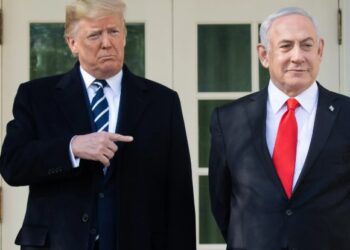In a recent WarRoom discussion, Steve Bannon and Jim Rickards analyzed the current state of American politics and the implications of President Biden’s cognitive decline on national security and the political landscape, and they talked about the consequences of Thursday’s disastrous debate.
Rickards is a frequent WarRoom guest and contributor, an American lawyer, economist, investment banker, and author known for his expertise in financial markets and geopolitical events. He advises governmental and financial institutions and is a prominent commentator on global economics and monetary policies. Rickards has authored influential books such as “Currency Wars,” “The Death of Money,” and “The Road to Ruin,” discussing currency wars, financial crises, and the global economic system’s vulnerabilities. He frequently appears on financial news programs and writes for various publications, offering deep insights into economic instability and wealth preservation.
Rickards began his Friday WarRoom appearance by highlighting the unchanged perception of President Biden over the past four years, describing him as being in cognitive decline, potentially suffering from some stage of dementia. He stressed that dementia is a progressive disease, implying Biden’s condition has likely worsened. Rickards noted that Biden’s recent appearances suggest he is being heavily medicated, which impacts his appearance and demeanor.
Rickards referenced Marshall McLuhan’s idea that “the medium is the message,” explaining that people often judge television personalities based on their visual and auditory presentation rather than their spoken content. He emphasized that Biden’s visual presentation during debates was particularly concerning, with his physical appearance potentially undermining his credibility and capability in the eyes of viewers.
Rickards praised President Trump for his sharp and strategic debate performance, likening him to a “ninja” for his ability to pivot topics effectively. He highlighted Trump’s ability to connect issues like immigration to broader concerns affecting African Americans and Hispanics, thus strengthening his appeal to these demographics. Rickards also commended Trump’s use of memorable phrases like “Manchurian candidate,” which succinctly conveyed complex accusations without delving into extensive details that might lose the audience.
Rickards expressed grave concerns about national security, given Biden’s cognitive state. He referenced Annie Jacobson’s book on nuclear war to illustrate the gravity of decision-making required in such scenarios. He argued that Biden, given his mental state, would likely be deemed incompetent to manage such critical responsibilities if he were not president. Rickards suggested that if Biden were a private citizen, his family might seek a legal guardian to manage his affairs.
The conversation shifted to the broader implications of the current political situation. Rickards pointed out that adversaries like China and Russia likely view the U.S. as weakened under Biden’s administration. He argued that the U.S. should seek strategic alliances, particularly with Russia, to counter the growing threat from China. Rickards emphasized that the greatest enemy of the U.S. is not external but internal, citing deep-seated political divisions and failures within the government.
Rickards criticized the judicial system for being complicit in what he described as the politicization of justice, particularly in the context of January 6th prosecutions. He cited the recent Supreme Court decision overturning wrongful prosecutions of defendants on January 6th as a rare victory for justice. Still, he lamented the broader failure of the judiciary to stand up to political pressures.
The discussion concluded with a focus on the potential strategies the Democratic Party might employ to navigate the political landscape, given Biden’s vulnerabilities. Rickards speculated on the possibility of significant legal and political maneuvers, including using the 14th Amendment to challenge Trump’s eligibility to run for office. He stressed that these ongoing legal battles are part of a broader strategy to undermine Trump’s political viability.
For more context, watch the full WarRoom segment:

![Bannon’s WarRoom, Show Clip Roundup 10/17/2024 [PM]](https://warroom.org/wp-content/uploads/2024/10/GQ-06-Bannon-061517-350x250.webp)



